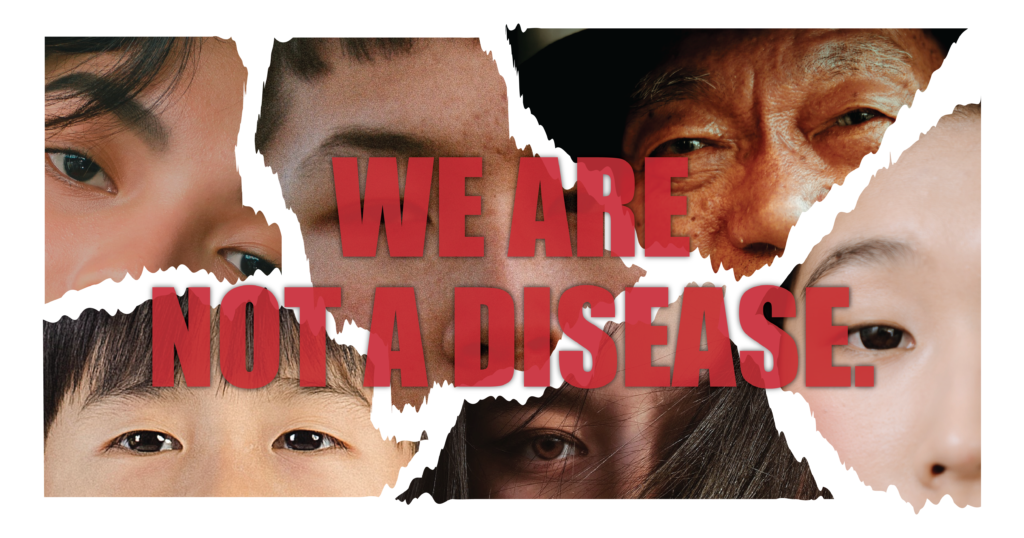Eight people were killed in a shooting on Tuesday, March 16 in two spas in Atlanta. Six of the victims were Asian women, sparking widespread concern about the frequency of hate crimes directed towards Asian Americans in the past year. Many Asian Americans were afraid the act of violence portended an increase of hate, and the city of Atlanta is extending extra support to protect Asian residents. It does not currently appear that the attack was primarily racially motivated, yet the attack caused a great deal of fear regardless.
It is likely that you or someone you know has witnessed an act of hate towards an Asian American in the last year. A third of Americans, 33%, admitted to having witnessed someone blaming Asians for the COVID-19 pandemic in an April 2020 poll by Ipsos.
Indeed, even some of our staff members have witnessed or had family members affected by anti-Asian sentiment in public places. Clearly, anti-Asian racism is a problem that impacts students and the community at NMU, even though only 5.1% of students (58 people) are Asian, according to the NMU enrollment factbook. The relative lack of diversity in Marquette and the Upper Peninsula more widely may cause many to think that racism is not an issue here. But that is simply not the case, and the situation requires more awareness.
Racism against Asians and those of Asian descent has a long and fraught history in the United States, which includes such examples as the Chinese Exclusion Act in 1882, propaganda linking Filipinos with diseases and supposed uncleanliness, and Roosevelt’s Executive Order 9066 which created concentration camps to house Japanese Americans during WWII. More recently, former President Trump introduced his 2018 ban on immigration from majority Muslim countries, including Iran, Syria and Yemen (yes, these countries are all part of Western Asia), as well as North Korea. The contemporary anti-Asian sentiment is often based on xenophobia and sometimes stems from Trump and other politicians’ rhetoric relating to the origins of the COVID-19 pandemic. Although it is possible to be critical of the Chinese government’s handling of the virus, it is not acceptable to scapegoat Chinese people and Asian people generally.
All these parts of our collective past built the stepping stones for racist rhetoric to be built up and resurface to a greater extent during the pandemic. To make matters worse, there is not very much education on the history of anti-Asian racism, and stereotypes regarding Asian Americans, both from Eastern Asia and Western Asia, abound. Americans seldom try to wrap their heads around the fact that Asia is the world’s largest continent, as well as the most populous.
So, it seems the first step in combating racism against Asians and people of Asian descent is educating ourselves and our community, countering stereotypes and understanding the history of racism faced by Asian Americans. Then we can more effectively support and protect our peers and community members. Stereotypes, denigrating rhetoric and hate crimes have no place here. As an editorial board, we condemn these acts of violence and hatred.
For those who have experienced or been affected by acts of anti-Asian hate, there are resources for reporting your experiences.
“We urge anyone who has been the victim of a hate crime or has witnessed such an act to contact the office of Attorney General Dana Nessel immediately,” Michigan Civil Rights Commission Commissioner Anupama Kosaraju said in an MCRC press release. “If you feel you have faced discrimination or bias based on your ethnicity, you have the right to file a complaint with the Michigan Department of Civil Rights. When people begin to face consequences for these acts of hate, it will put others on notice that they too may have a price to pay for such actions.”
Reports can be filed to the Department of the Attorney General Hate Crimes Unit via phone at 313-456-0200 or via email at HateCrimes@michigan.gov. Reports can also be filed to the Michigan Department of Civil Rights via phone at 1-800-482-3604 or online at Michigan.gov/MDCR under the link to file a complaint.
Editor’s Note: The North Wind is committed to offering a free and open public forum of ideas, publishing a wide range of viewpoints to accurately represent the NMU student body. This is an editorial, written by the North Wind Editorial Board in its entirety. It reflects the majority views of the individuals who make up the editorial staff of the North Wind. It is the policy of the Editorial Board not to endorse candidates for any political office, in order to avoid aligning this public forum with particular political organizations.






























